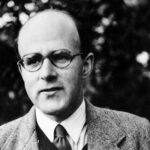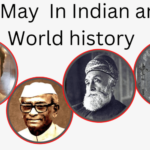Image Courtesy: Google Doodle
Mary Shelley (30 August 1797 – 1 February 1851) was a prominent English novelist known for her groundbreaking work in the Gothic genre. Her most famous creation, the novel “Frankenstein; or, The Modern Prometheus,” published in 1818, is considered an early example of science fiction. Beyond her own literary achievements, she also played a role in editing and promoting the works of her husband, the Romantic poet and philosopher Percy Bysshe Shelley. Mary’s lineage was deeply rooted in philosophical thought and advocacy for women’s rights.
Life and Career
Mary Shelley was born as Mary Wollstonecraft Godwin in Somers Town, London, in 1797. Her parents were both influential figures in their own right. Her mother, Mary Wollstonecraft, was a feminist philosopher, educator, and writer known for her groundbreaking work in advocating for women’s rights. Tragically, Mary Wollstonecraft passed away from puerperal fever just 11 days after giving birth to Mary. Her father, William Godwin, was a philosopher, novelist, and journalist known for his radical ideas and anarchist political theories.
Mary’s upbringing was marked by the absence of her mother and the influence of her father. William Godwin took on the responsibility of raising Mary and her older half-sister, Fanny Imlay, the child of Mary Wollstonecraft and Gilbert Imlay. William Godwin’s publication of “Memoirs of the Author of A Vindication of the Rights of Woman” in 1798 aimed to pay tribute to Mary Wollstonecraft’s memory, but it revealed her personal affairs and unconventional choices, causing controversy.
Literary Themes and Styles
Mary Shelley’s affinity for writing and storytelling was nurtured by her father, who encouraged her to write letters and stories. Her childhood was marked by a fascination with writing, and she immersed herself in creating stories. Unfortunately, much of her early work, known as juvenilia, was lost when she fled with Percy Shelley in 1814. While it’s challenging to definitively date her surviving manuscripts prior to that year, her literary pursuits became an integral part of her life.
Mary Shelley’s literary legacy extends far beyond “Frankenstein.” Her profound contributions to literature, her role as a female author in a predominantly male literary landscape, and her exploration of themes like science, morality, and the consequences of human ambition continue to captivate readers and scholars alike.
On 30 August 2010, a Google Doodle was created to celebrate Mary Shelley’s 213th Birthday.
Tags: Award for Mary Shelley, Career of Mary Shelley, FAQ on Mary Shelley, Legacy of Mary Shelley, Life of Mary Shelley












